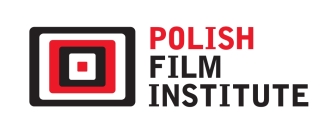Screenwriter in the Times of Industrial Culture. Anatol Stern’s Interwar Film Journalism
Aleksander Wójtowicz
awojtowi@gmail.comMaria Curie-Sklodowska University (Poland)
https://orcid.org/0000-0003-0436-1965
Abstract
Anatol Stern’s interwar film journalism makes it possible to trace how the consciousness of the artist working in the sphere of modern “industrial culture” was shaped (Harro Segeberg’s term). The author describes the consequences of the transition from the field of literature to the cinematographic industry and the ambivalence that accompanied the artist who transformed himself from a writer with social authority to a “provider of texts”. The author also shows how Stern’s functioning within a literary institution influenced his way of thinking about the relationships between literature and film, the essence of writing and about copyright.
Keywords:
Anatol Stern, film journalism, screenwriting, interwar period, industrial cultureReferences
Benjamin, Walter. Dzieło sztuki w dobie reprodukcji technicznej, transl. J. Sikorski, in: Twórca jako wytwórca. Wydawnictwo Poznańskie, Poznań 1975.
Google Scholar
Biskupski, Łukasz. Kinofilia zaangażowana. Stowarzyszenie Miłośników Filmu Artystycznego „Start” i upowszechnianie kultury filmowej w latach 30. XX w. Wydawnictwo Przypis, Łódź 2017.
Google Scholar
Giżycki, Maciej. Awangarda wobec kina. Film w kręgu polskiej awangardy artystycznej dwudziestolecia międzywojennego. Wydawnictwo Małe, Warszawa 1996.
Google Scholar
Giżycki, Maciej. Walka o film artystyczny w międzywojennej Polsce. PWN, Warszawa 1989.
Google Scholar
Hagener, Malte. Moving Forward, Looking Back. The European Avant-Garde and the Invention of Film Culture, 1919-1939. Amsterdam University Press, Amsterdam 2007.
DOI: https://doi.org/10.5117/9789053569610
Google Scholar
Kowalski, Alfred. U twórców polskiego filmu. Rozmowa z Anatolem Sternem.„Świat Filmu” 1937.
Google Scholar
Radkiewicz, Małgorzata. Modernistki o kinie. Kobiety w polskiej krytyce i publicystyce filmowej 1918-1939, Korporacja Ha!art, Kraków 2006.
Google Scholar
Segeberg, Harro. Literatura w kulturze przemysłowej. transl. B. Balicki, „Teksty Drugie” 2012, no 6.
Google Scholar
Słonimski, Antoni. Kronika tygodniowa. „Wiadomości Literackie” 1931, no 18.
Google Scholar
Solomon, Stefan. William Faulkner In Hollywood: Screenwriting for the Studios. University of Georgia Press, Georgia 2017.
DOI: https://doi.org/10.2307/j.ctt1g2km2r
Google Scholar
Stern, Anatol. Cztery filmy. „Wiadomości Filmowe” 1936, no 2.
Google Scholar
Stern, Anatol. „Gwiazdy” na gwiazdkę. „X Muza” 1937, no 24.
Google Scholar
Stern, Anatol. Nie chcemy kataryniarzy!... „X Muza” 1937, no 21.
Google Scholar
Stern, Anatol. Nieproszeni goście. „X Muza” 1937, no 9.
Google Scholar
Stern, Anatol. O właściwe miejsce dla filmu. „X Muza” 1937, no 1.
Google Scholar
Stern, Anatol. Prawa scenarzysty a uświęcone bezprawie. „Wiadomości Filmowe” 1936, no 22.
Google Scholar
Stern, Anatol. Scenariusz. „X Muza” 1938, no 5.
Google Scholar
Stern, Anatol. Scenariusz i jego realizacja. „Wiadomości Filmowe” 1934, no 21.
Google Scholar
Stern, Anatol. Stawiamy na autora. „Wiadomości Filmowe” 1936, no 18.
Google Scholar
Stern, Anatol. Teatr i film. Dwaj wrogowie. „Wiadomości Filmowe” 1935, no 24.
Google Scholar
Stern, Anatol. W obronie własnej. „Kino” 1931, no 19.
DOI: https://doi.org/10.1007/BF01520311
Google Scholar
Stern, Anatol. Wspomnienia z Atlantydy. Wydawnictwa Artystyczne i Filmowe, Warszawa 1959.
Google Scholar
Stillinger, Jack. Multiple Authorship and the Myth of Solitary Genius. Oxford University Press, Oxford 1991.
Google Scholar
Stradomski, Wiesław. Drugi oddech polskiego kina, in: Historia filmu polskiego, vol. 2: 1930-1939. Polskie Wydawnictwa Artystyczne i Filmowe, Warszawa 1988.
Google Scholar
Twórca piętnastu scenariuszy. „Wiadomości Filmowe” 1935, no 18.
Google Scholar
Williams, Alan. Historical and Theoretical Issues in the Coming of Recorded Sound to the Cinema, in: Sound Theory, Sound Practice. Ed. by Robert B. Altman, New York: Routlege 1992.
Google Scholar
Wójtowicz, Aleksander. „Cogito” i „sejsmograf podświadomości”. Proza Pierwszej Awangardy. Wydawnictwo UMCS, Lublin 2010.
Google Scholar
Zahorska, Stefania. Rozbój filmowy. „Wiadomości Literackie” 1936, no 50.
Google Scholar
Zajiček, Edward. Poza ekranem. Kinematografia polska 1918-1991. Filmoteka Narodowa, Warszawa 1992.
Google Scholar
Authors
Aleksander Wójtowiczawojtowi@gmail.com
Maria Curie-Sklodowska University Poland
https://orcid.org/0000-0003-0436-1965
Dr hab., historyk literatury, edytor, adiunkt w Zakładzie Literatury XX i XXI w. Instytutu Filologii Polskiej Uniwersytet Marii Curie-Skłodowskiej. Zajmuje się dziejami europejskich ruchów awangardowych, współczesną sztuką eksperymentalną oraz edytorstwem literatury XX w. Autor książek Cogito i „sejsmograf podświadomości”. Proza Pierwszej Awangardy (2010) oraz Nowa Sztuka. Początki (i końce) (2017), współredaktor monografii, edycji krytycznych i popularnych; publikował m.in. w „Pamiętniku Literackim”, „Ruchu Literackim”, „Tekstach Drugich”, „Praktyce Teoretycznej”, „Kwartalniku Filmowym”.
Statistics
Abstract views: 242PDF downloads: 218
License
Copyright (c) 2019 Kwartalnik Filmowy

This work is licensed under a Creative Commons Attribution-NonCommercial-NoDerivatives 4.0 International License.
The author grants the publisher a royalty-free non-exclusive licence (CC BY 4.0) to use the article in Kwartalnik Filmowy, retains full copyright, and agrees to identify the work as first having been published in Kwartalnik Filmowy should it be published or used again (download licence agreement). The journal is published under the CC BY 4.0 licence. By submitting an article, the author agrees to make it available under this licence.
In issues from 105-106 (2019) to 119 (2022) all articles were published under the CC BY-NC-ND 4.0 licence. During this period the authors granted a royalty-free non-exclusive licence (CC BY-ND 4.0) to use their article in „Kwartalnik Filmowy”, retained full copyright, and agreed to identify the work as first having been published in our journal should it be published or used again.











